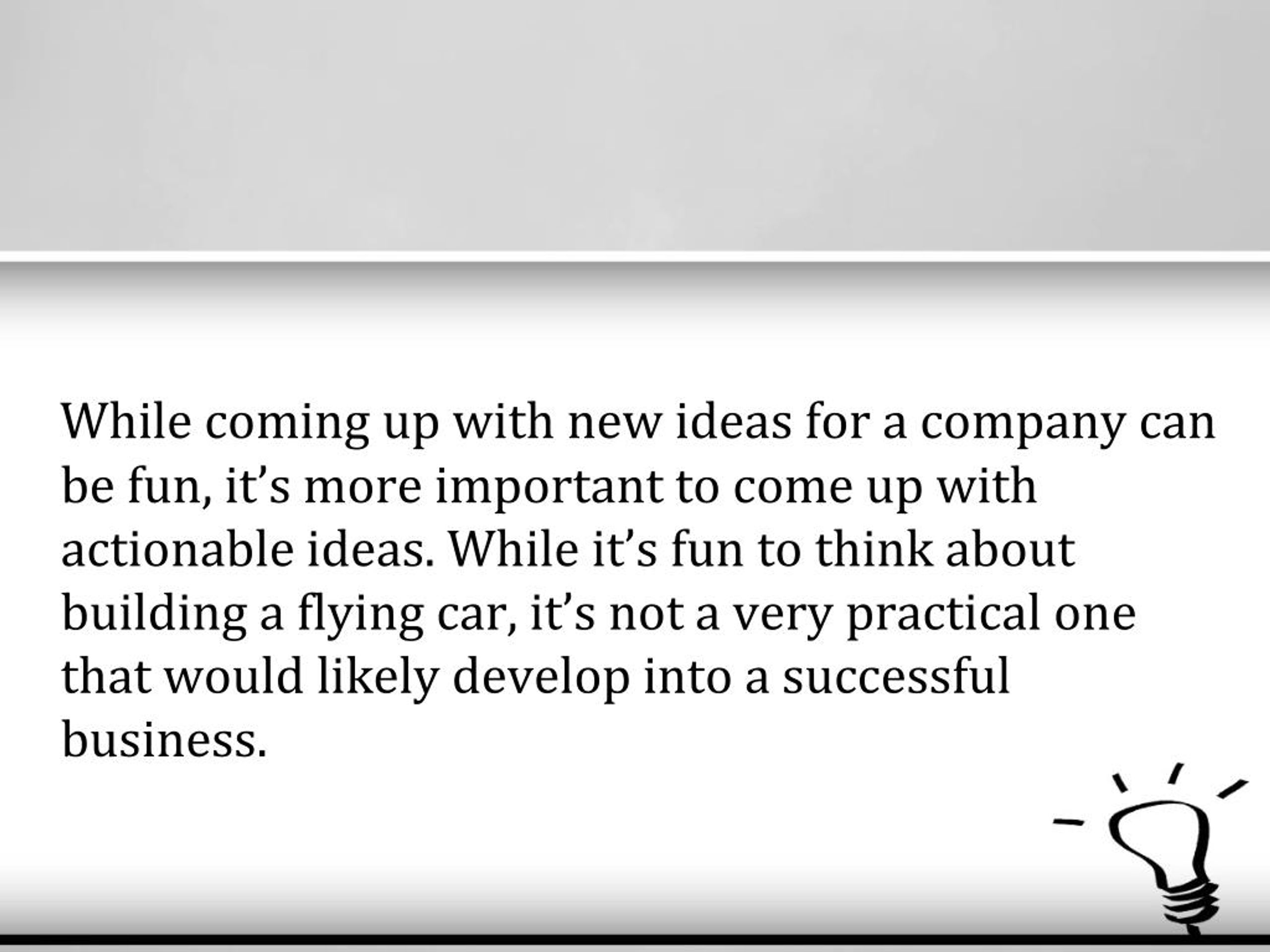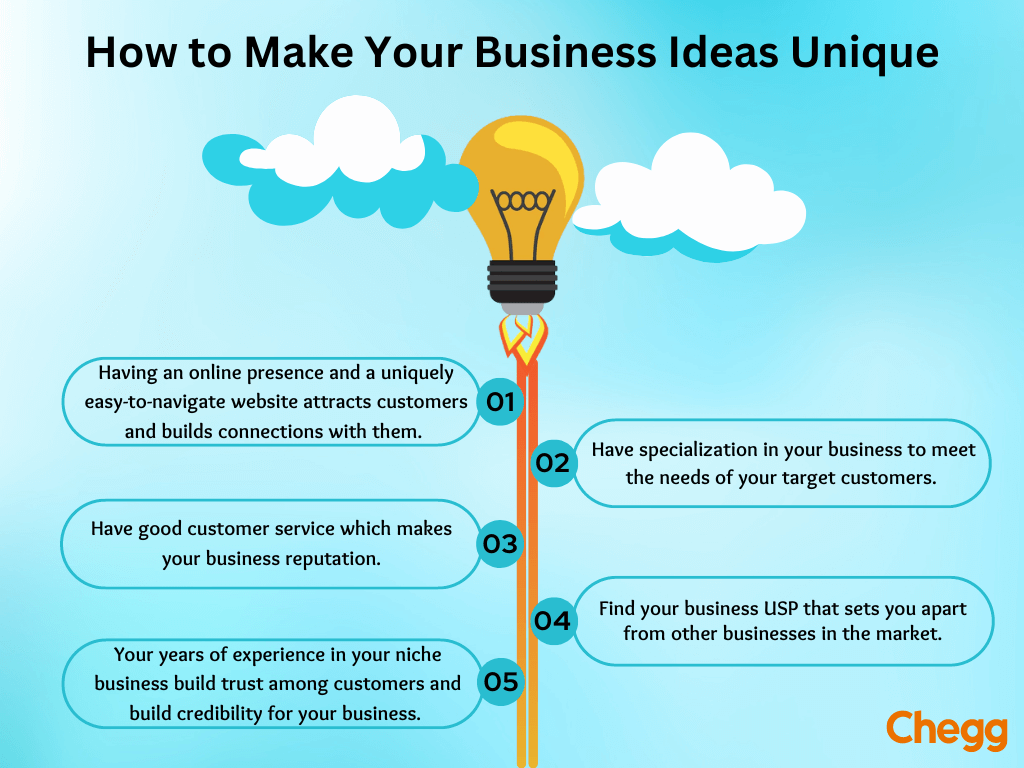Coming Up With Ideas For A Business

The graveyard of failed startups is paved with good intentions, but often lacks one crucial ingredient: a solid, viable business idea. For every unicorn that disrupts an industry, countless others wither on the vine, victims of flawed concepts or markets that simply weren't ready. The question facing aspiring entrepreneurs isn't just about *having* an idea, but about cultivating, validating, and refining it into something that can thrive.
This article explores the multifaceted process of generating business ideas, moving beyond simple brainstorming to examine the methodologies, resources, and critical thinking required to identify opportunities, assess their potential, and ultimately, lay the foundation for a successful venture. We'll delve into diverse approaches, from leveraging personal expertise to analyzing market trends, offering a comprehensive guide for those seeking to transform inspiration into innovation.
Identifying Untapped Needs and Pain Points
A cornerstone of successful business ideation is the ability to spot unmet needs. This involves actively listening to potential customers, observing their behaviors, and identifying frustrations within existing markets. Market research, both primary (surveys, interviews) and secondary (industry reports, academic studies), plays a vital role in uncovering these opportunities.
According to a 2023 report by the Small Business Administration (SBA), "Understanding customer needs and preferences is a critical element for success." This sentiment is echoed by many successful entrepreneurs. One approach is the "Jobs to Be Done" framework, which focuses on understanding the underlying reasons why customers purchase products or services, rather than simply focusing on demographics.
Leveraging Personal Expertise and Passion
While identifying market gaps is crucial, aligning an idea with personal skills and passions can significantly increase the likelihood of success. Passion provides the drive to overcome the inevitable challenges of starting a business, while expertise offers a competitive edge in developing and delivering the product or service. This overlap creates a powerful foundation.
"Start with something you know and care about," advises Sarah Blakely, founder of Spanx. Leveraging existing knowledge reduces the learning curve and allows entrepreneurs to focus on execution. However, it's vital to remain objective and avoid becoming overly attached to an idea, even if it's born from personal passion.
Analyzing Market Trends and Disruptive Technologies
Keeping a close eye on emerging market trends and disruptive technologies can reveal significant business opportunities. Areas like artificial intelligence, sustainable energy, and personalized healthcare are ripe with potential. However, success requires more than just identifying a trend; it requires understanding its underlying drivers and predicting its future trajectory.
"Disruption is the new normal," according to a recent report by Deloitte. The report highlights the importance of agility and adaptability in responding to rapidly changing market conditions. Entrepreneurs must be willing to pivot and adjust their strategies as needed to capitalize on emerging opportunities and mitigate potential risks.
Validating and Refining Your Idea
Once an idea has been generated, it's crucial to validate its potential before investing significant time and resources. This involves gathering feedback from potential customers, conducting market research, and developing a minimum viable product (MVP) to test key assumptions. The MVP allows for real-world testing and refinement of the idea based on actual user feedback.
The lean startup methodology, popularized by Eric Ries, emphasizes the importance of iterative development and customer validation.
"The goal is to learn as quickly as possible, and to avoid building something that nobody wants,"Ries writes in his book, *The Lean Startup*. This approach helps entrepreneurs to minimize risk and increase the chances of building a successful business.
Resources for Idea Generation and Validation
Numerous resources are available to assist entrepreneurs in the idea generation and validation process. Incubators and accelerators provide mentorship, funding, and networking opportunities. Government agencies like the SBA offer educational resources and funding programs. Online platforms provide tools for market research, customer surveys, and competitor analysis.
Utilizing these resources can significantly increase the chances of success. Furthermore, building a strong network of mentors, advisors, and peers can provide invaluable support and guidance throughout the entrepreneurial journey. Don't be afraid to seek help and learn from the experiences of others.
The Future of Business Ideation
The process of generating business ideas is constantly evolving, driven by technological advancements and changing market dynamics. The rise of artificial intelligence and data analytics is creating new opportunities for identifying and validating ideas. Crowdsourcing and open innovation platforms are enabling collaboration and co-creation on a global scale.
In the future, successful entrepreneurs will need to be adept at leveraging these tools and technologies to identify and capitalize on emerging opportunities. The ability to think critically, adapt quickly, and embrace continuous learning will be essential for navigating the complexities of the modern business landscape. The journey of creating a viable business starts with that first, well-researched, thoroughly vetted idea. The future belongs to those who are willing to challenge assumptions, embrace innovation, and relentlessly pursue their vision.


















